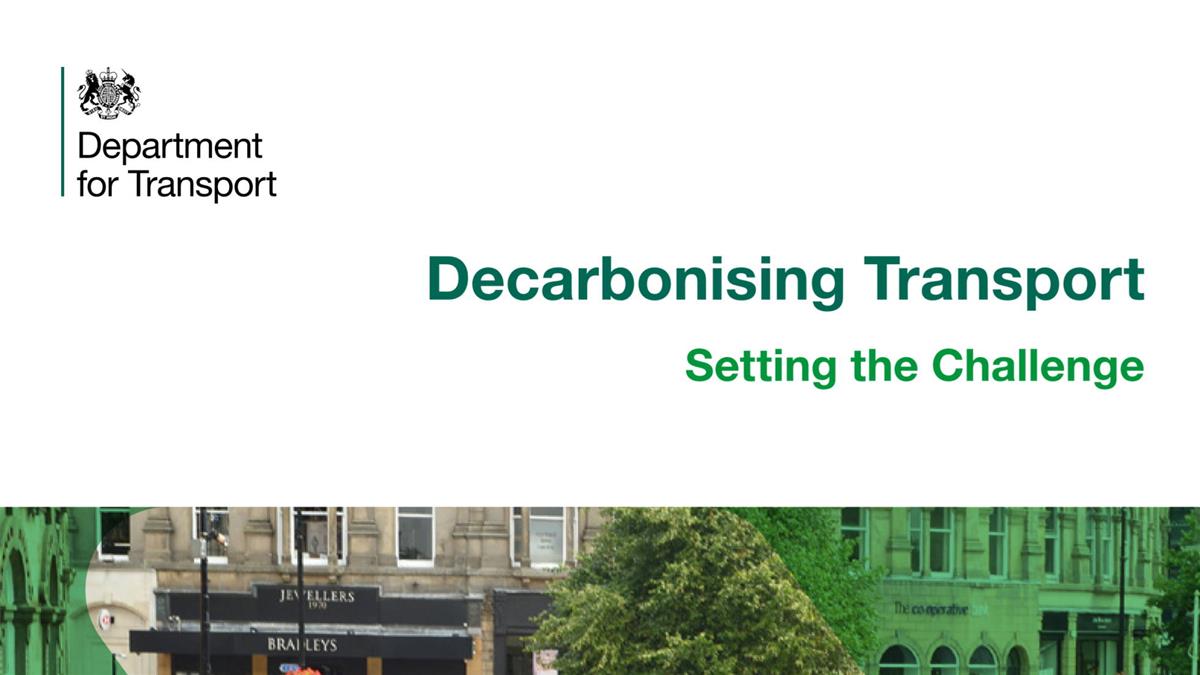
Decarbonising Transport is the Government's latest policy update, released quietly whilst everyone was concentrating on coronavirus, self-isolating, and essential journeys only. Citing the law that requires the UK to achieve 'net zero' greenhouse gas (GHG) emissions by 2050, the paper sets out how this will be achieved.
Ok, so it does mention motorcycles on page 3 of the paper... but only to say that they will be zero emission. The main promotion for transport seems to be away from personal motorised vehicles and on to public transport and self-powered machines. What they are really saying is that they don't want those who can't afford it travelling around as they used to and instead want to keep them in their local areas. It is a case of cutting the freedom of the individual - you can get to some pretty scenic parts of the UK in a matter of hours on a motorcycle which can go where you want, but those journeys would take much longer on public transport which needs to run to a timetable and to specific routes.
The statistics are there in the document. Transport is now the largest cause of emissions in the UK, and car journeys are the largest in that sector but motorcycle emissions don't even feature (included in 'other') and if they were significant then I'm sure they would feature. The percentage of personal transport across the country is around 70% of journeys, but in London it's only 27%. This is not as a result of the public transport in London but because when everything is concentrated in a small space then public transport becomes efficient - which certainly isn't the case in Scotland where things are far more spread apart. Another telling statistic is the increase in van usage. You aren't going to be able to take your roofing tiles on public transport to your next roofing job, or your plumbing kit on the bus.
There is mention in the paper about making the UK the technological leader in electric vehicles and doing this by banning new petrol and diesel vehicles from 2035. So no money invested then? It might make the UK more reliant on electric vehicles but it won't promote investment as it stands when other countries have already got a march on the UK. They are investing 2.5 billion pounds in converting people to electric vehicles and promoting infrastructure, but that is just a drop in the ocean. There are some ambitious targets regards the chargepoint infrastructure targets mentioned, and they have extended the duration of grants to get a chargepoint in your home to 2021.
The section on delivering goods does not mention motorcycles at all. Given that most take-away food deliveries are by scooter or moped you would have thought they would be considered in the paper if they were being thorough. Public feedback on the policy paper will be from 'spring 2020' so keep an eye out for that. The more people who mention motorcycles as a solution the better.
Motorcycles are actually mentioned three times in the policy paper. The first time is to say they will be zero emission. The second time is on page 20 where it says grants are available for plug-in motorcycles. The last time is on page 60 where is re-iterates that they will become zero emission. There is nothing in the document that even vaguely suggests that motorcycles could be a solution to the current congestion - which is the main contributor to transport pollution - experienced in most town centres and city streets. There is a reason why most take-away deliveries are done on scooters and mopeds - it's quicker and cheaper and thus less polluting.
The direction is pretty clear. The Government want everyone on public transport or push-bikes, and those who have charge-points on their street can have an electric vehicle. The issue with this is the density of charge points, the wiring, and parking. About a third of motorists don't have off-street parking and an even larger number don't have any way to get power to where they park - they will need to rely on charge points and if you can't get close enough to one because of the way people have parked and the wires not being long enough then what? This isn't going to work well for motorcycles either that aren't the best vehicle to leave on the street.
There is nothing exciting or far-reaching in this policy paper. It is just re-iterating the old mantra of plug-in charging and public transport. This isn't what the future of transport should be like. Public transport should get a massive overhaul and the model changed - there should be no need for people to follow the same routes and go all over the place just to get where they want to, they should be able to summon an autonomous electric vehicle on demand that takes them exactly where they want to go - a vehicle that will make sure it charges itself when it needs to so you don't have to. You want to go to Tesco then you summon an EV and go to Tesco and then when you are ready to go home you summon another EV and go home. Simple and what the future or public transport should be. For personal EVs charging should be wireless, and there is mention of wireless charging in the paper but if we have wireless in the future, why would we want to invest in wires now? Why not put all the funding into wireless charging? That would definitely create a technological lead. But no, the policy is dull and boring, as is the paper.
The big thing for us is the lack of consideration of motorcycles in the policy paper. Motorcycles have been lumped in with cars by people who neither understand two wheels nor use two wheels. This will not be good for our future and we must make a stand on this point and get the Government to think sensibly and inclusively about motorcycles and their place as a solution to congestion. Think about it, you'll still be sitting in the same queues for the same amount of time in electric cars, wasting all the time and energy when you could be on an electric motorcycle getting where you want to go quickly and efficiently. When the public consultation opens, you must push motorcycles as a positive way to help decarbonise transport.
N.B. Whatever your view on electric vehicles, you might want to look at the Government grant for getting a charge-point put into your home. That's going to improve the value of your house and if the Government are paying something then it may make economic sense.










